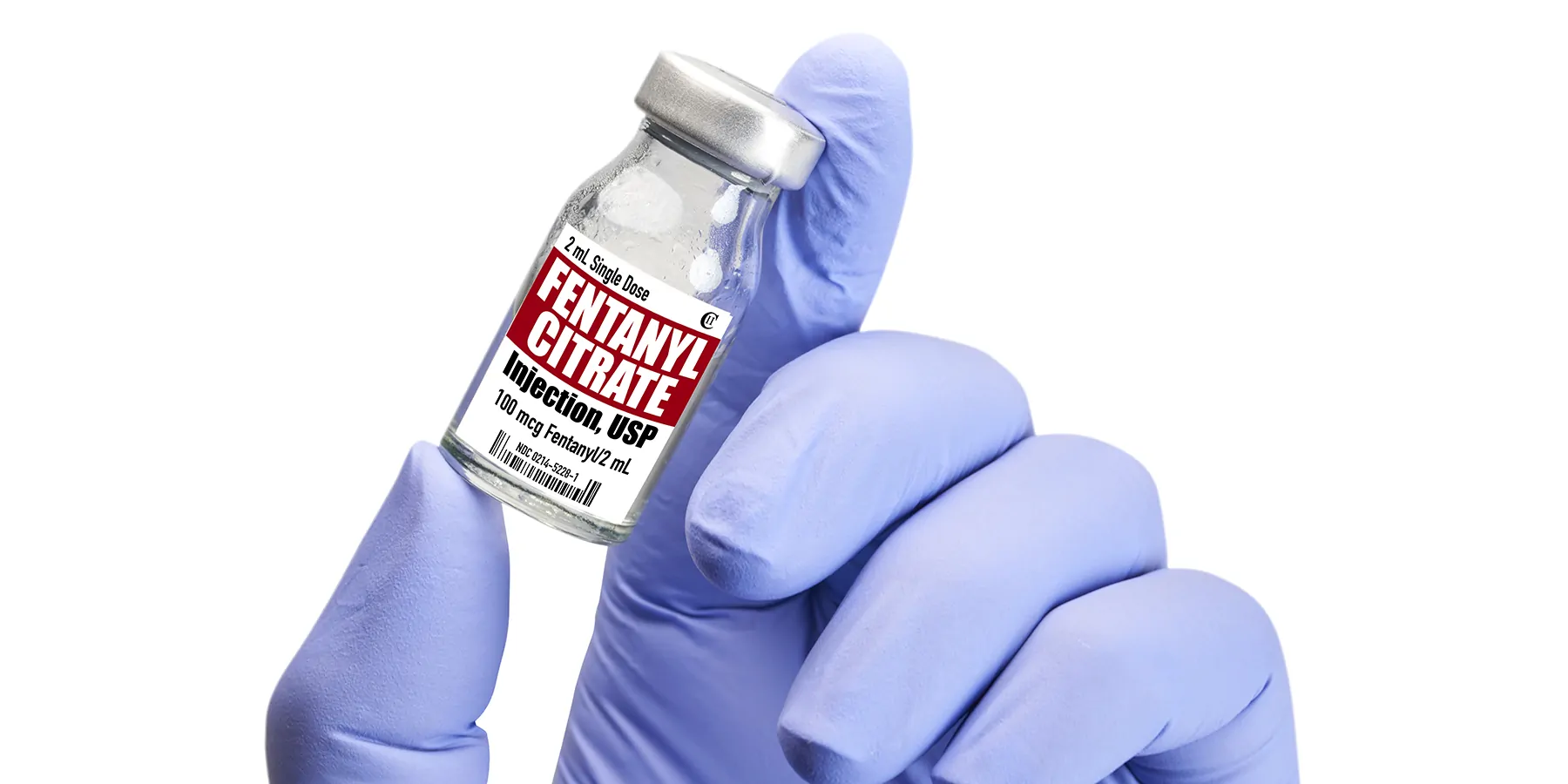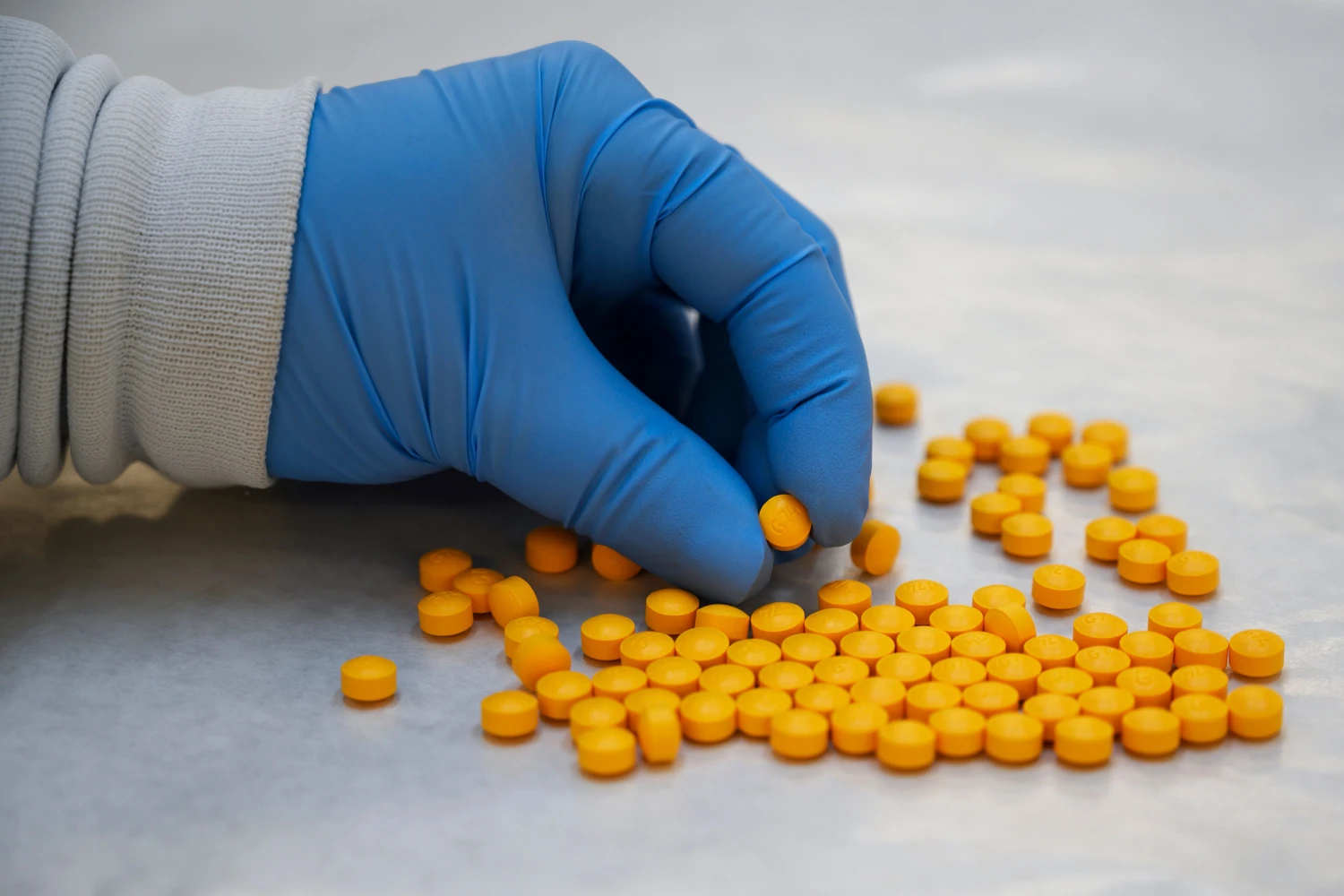A fentanyl-based vaccine developed by researchers at the University of Houston is anticipated to enter clinical trials by mid-next year, with hopes that it will be a significant breakthrough in combating the ongoing opioid crisis.
This vaccine, which has shown promise in animal studies, is designed to prevent the highly addictive opioid from entering the brain and causing an overdose.
Ovax, a biopharmaceutical startup, secured a license to produce and test the vaccine in November 2023 and had raised over $10 million for this purpose by June.
“We’re all incredibly excited,” said Collin Gage, co-founder and CEO of Ovax, who noted that while the company is starting from “ground zero,” they are optimistic about eventually bringing a fentanyl vaccine to the public.
However, the path to a publicly available vaccine may be long. Although public health emergencies like the COVID-19 pandemic can accelerate vaccine development, it typically takes five to ten years—or even longer—to test and approve a new vaccine.
In the meantime, fentanyl overdose deaths have skyrocketed in Texas, rising from fewer than 80 in 2014 to nearly 2,300 in 2023, according to the Texas Department of State Health Services.
Fentanyl, a synthetic opioid that is 50 times more potent than heroin and 100 times more potent than morphine, is currently the deadliest drug in the opioid crisis.
The concept of creating an opioid vaccine has intrigued scientists since the 1970s. Unlike bacteria or viruses, opioids are not naturally recognized by our immune system as threats.
However, the immune system can be trained to produce antibodies against opioids like fentanyl through a vaccine that combines parts of the drug with non-infectious components of bacteria, enhanced by substances called adjuvants.
Adjuvants are critical in boosting immune responses and are particularly important in vaccines targeting substance use disorders.
Previous efforts to develop these vaccines have failed, partly due to ineffective adjuvants, according to Jay Evans, director of the Center for Translational Medicine at the University of Montana.
Evans, who is also chief scientific and strategy officer at the biotech company Inimmune, is involved in developing and testing various vaccines, including those for fentanyl and heroin addiction.
The adjuvant in the University of Houston’s fentanyl vaccine is an enterotoxin, a chemical produced by Escherichia coli bacteria, modified to be non-infectious.
This adjuvant was developed at Tulane University in the early 2000s and has been used in numerous vaccines, according to Colin Haile, a professor of psychology at the University of Houston who led the vaccine’s development. Haile is also a co-founder and adviser to Ovax.
“There have been 15 human clinical trials in combination with other vaccines,” Haile said of the adjuvant used in their vaccine. “There have been studies in infants with fantastic results, showing almost no side effects.”
Other researchers, including David Dowling and Dr. Ofer Levy, both co-founders of Ovax, are looking for adjuvants that have yet to be tested in humans but have shown effectiveness in boosting immune responses in vaccines targeting substance use disorders in animal studies.
Phase 1 clinical trials for the University of Houston’s fentanyl vaccine are expected to commence in the second quarter of 2025.

Ovax is also in licensing negotiations with Boston Children’s Hospital for a fentanyl vaccine developed by Dowling and Levy, which could lead to Phase 1 clinical trials as early as 2026 if successful.
These initial studies will focus on the vaccine’s safety, potential side effects, and optimal dosage. However, finding participants for these trials will be challenging, Evans noted.
“It’s going to be more difficult than a typical clinical trial for an infectious disease. The FDA is clear that we won’t be testing this vaccine in healthy people without some form of opioid dependence,” Evans explained.
“We have to focus on patients in Phase 1 who have a history of opioid use disorder, which is a more challenging population to recruit. It’s going to take longer, and this patient population is likely to have more adverse events since they are drug users, making them harder to track.”
Evans also pointed out that the stigma surrounding addiction and drug use might make individuals reluctant to disclose their conditions and participate in clinical trials.
Ovax has yet to decide on the location for its Phase 1 clinical trials, but Gage mentioned that they are considering sites in Australia and the Netherlands, with the United States also being a possibility. “We are also looking in the U.S.,” he said, “but finding the right patient population is challenging.”
Future clinical trials will need to assess the vaccine’s effectiveness, identify the individuals who would benefit most, and determine how long the immunity lasts.
Some critics argue that fentanyl vaccines might divert resources from existing opioid addiction treatments such as buprenorphine, methadone, and naltrexone. They also question whether people will seek out the vaccine.
“People need to decide they want the shot and commit to returning for every dose or infusion,” said Keith Humphreys, a professor of psychiatry and behavioral sciences at Stanford University, in a 2023 interview.
“Vaccines do nothing to reduce cravings or withdrawal symptoms, nor do they motivate anyone to return for more care.”
For Haile, the fentanyl vaccine is not a standalone solution but another tool in the fight against the opioid crisis.
He and his colleagues at the University of Houston conducted animal studies to look into how the vaccine interacts with buprenorphine, a drug commonly used to manage withdrawal symptoms and cravings.
While the results have yet to be published, Haile described them as “pretty impressive,” suggesting that fentanyl vaccines could enhance the effectiveness of existing treatments.
“The most important thing to remember is that we are moving as quickly as possible,” Haile emphasized.
“We need to get something to market as soon as possible to address this terrible problem. The ultimate goal is to protect people and save lives.”
